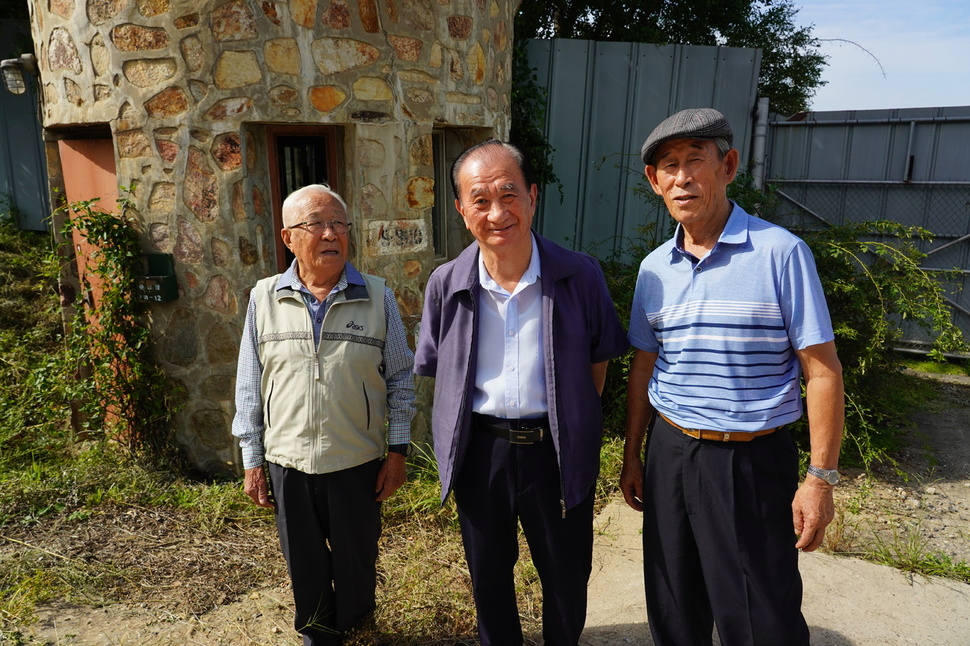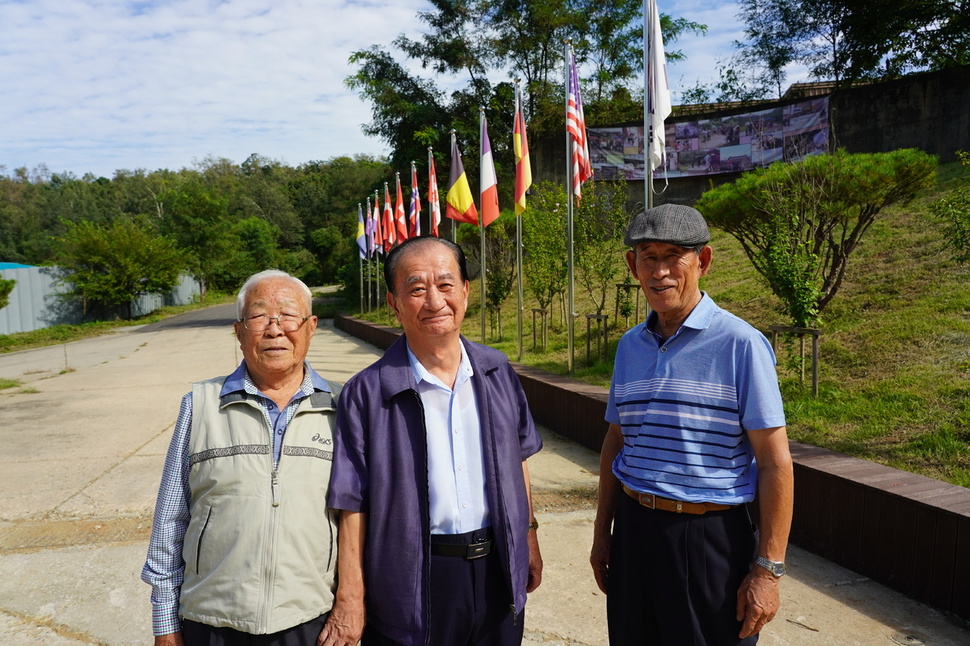 |
|
Residents of Bongilcheon No. 4 Village, Jori Township, Paju, survey the spot where the US military base Camp Howze used to be stationed. (Park Kyung-man, North Gyeonggi correspondent)
|
Residents offered services for US soldiers for meager wages
Fifteen years after the departure of the US military base at Camp Howze, the nearby camp town remains frozen in the past like a broken clock. Visiting on Sept. 17 with residents of Bongilcheon No. 4 village from the township of Jori in Paju, Gyeonggi Province, I saw that the vacated buildings of the base in the village’s back hills were still in good condition – but the village itself has faced a rapid decline amid delays in an urban redevelopment project. Previously a quiet farming community of some 50 families on the banks of Gongneung Stream, Bongilcheon No. 4 underwent a full-scale transformation with the sudden arrival of foreign armies when the Korean War broke out in 1950. Hundreds of people came from all over South Korea in search of employment, including sex workers; they set up tents in front of the US base or rented rooms as they went to work selling services to US soldiers. The village’s oldest resident at 95, Lee Jae-choon explained, “Now that the US military base is gone, everybody’s scattered, and it’s only the people with no place to go who have settled down and made it their second home.” “It’s been a sad time. I thought I’d get to go home soon after the base moved,” he said with a grim smile. The oldest child of nine, Lee crossed the 38th Parallel alone on July 21, 1946, leaving his wife, son, parents, and eight younger brothers and sisters behind in his home county of Pyoksong in North Korea’s Hwanghae Province. As the oldest son, he had been sent South by his father, a farmer and Chosun Democratic Party member, after a conflict over land distribution with a relative who was a member of the Communist Party. He briefly reunited with his family in his home village after Seoul was recaptured on Sept. 28, 1950, but had to leave a day later when combat broke out on nearby Mt. Songak. Since then, he has since endured a harsh 70 years away from home. After facing several brushes with death in Ongjin and on Yeonpyeong Island, Lee opted to survive by becoming a member of the “UN police,” who played an assisting role to US forces. After a week of training, he was assigned to the Uijeongbu Police Station, where he watched over the armory at Dongducheon and guarded soldiers, police, and female workers “entertaining” the troops. His duties also included transporting refugees to the Geumchon camp from Jangdan in Paju.
 |
|
Residents of Bongilcheon No. 4 Village, Jori Township, Paju, survey the spot where the US military base Camp Howze used to be stationed. (Park Kyung-man, North Gyeonggi correspondent)
|







